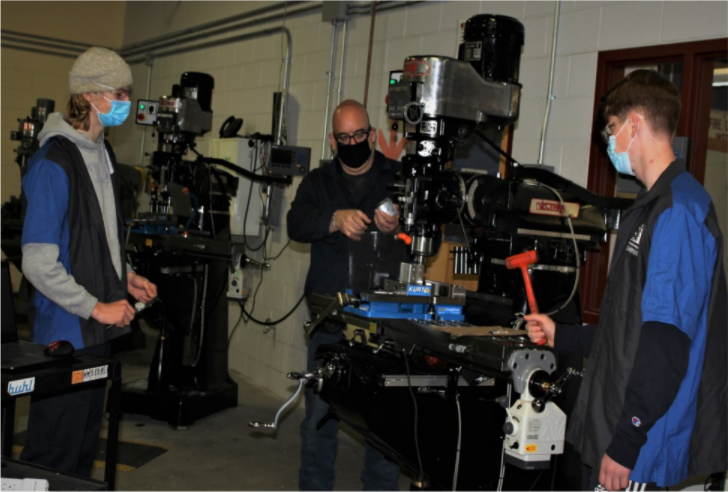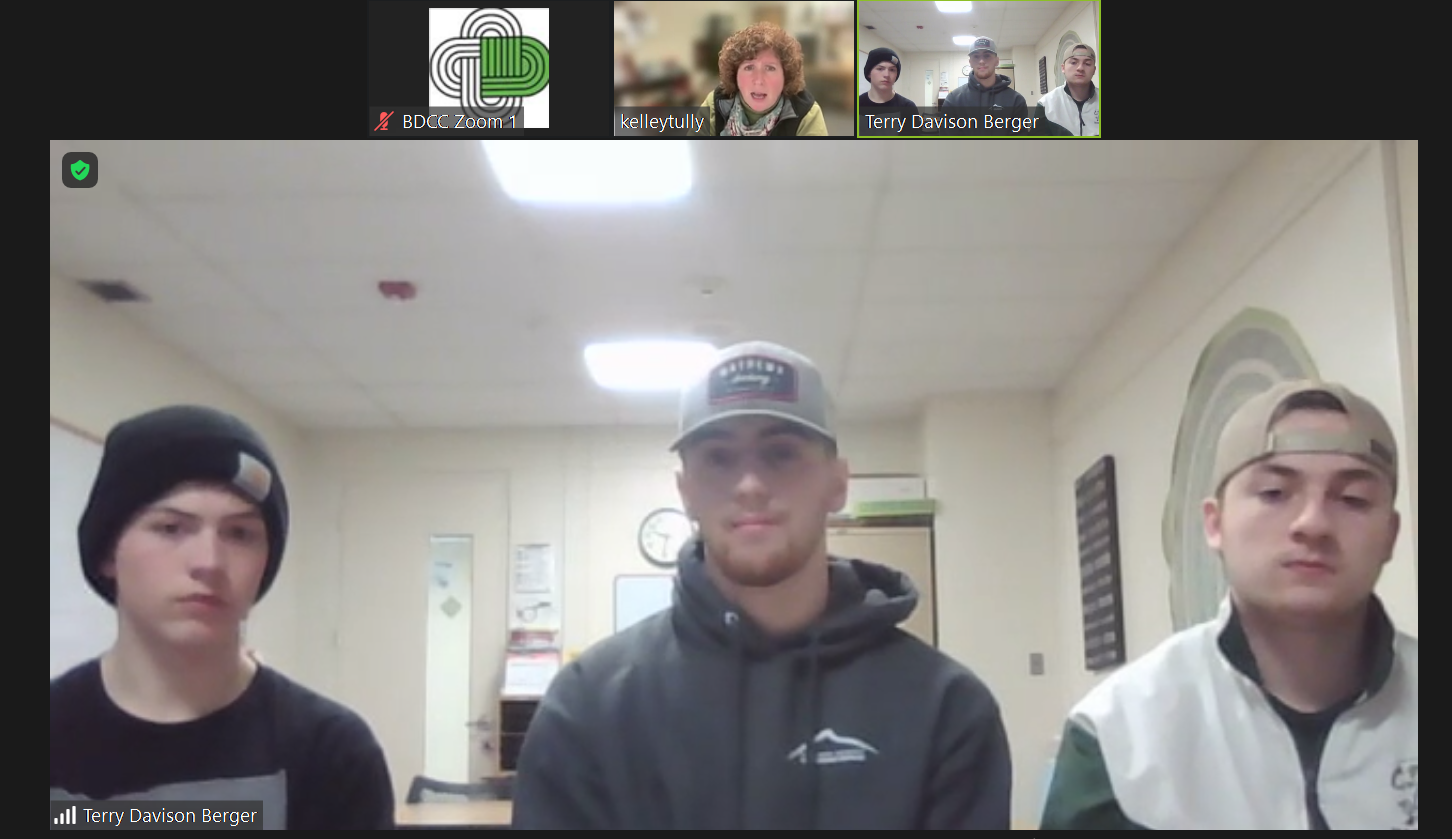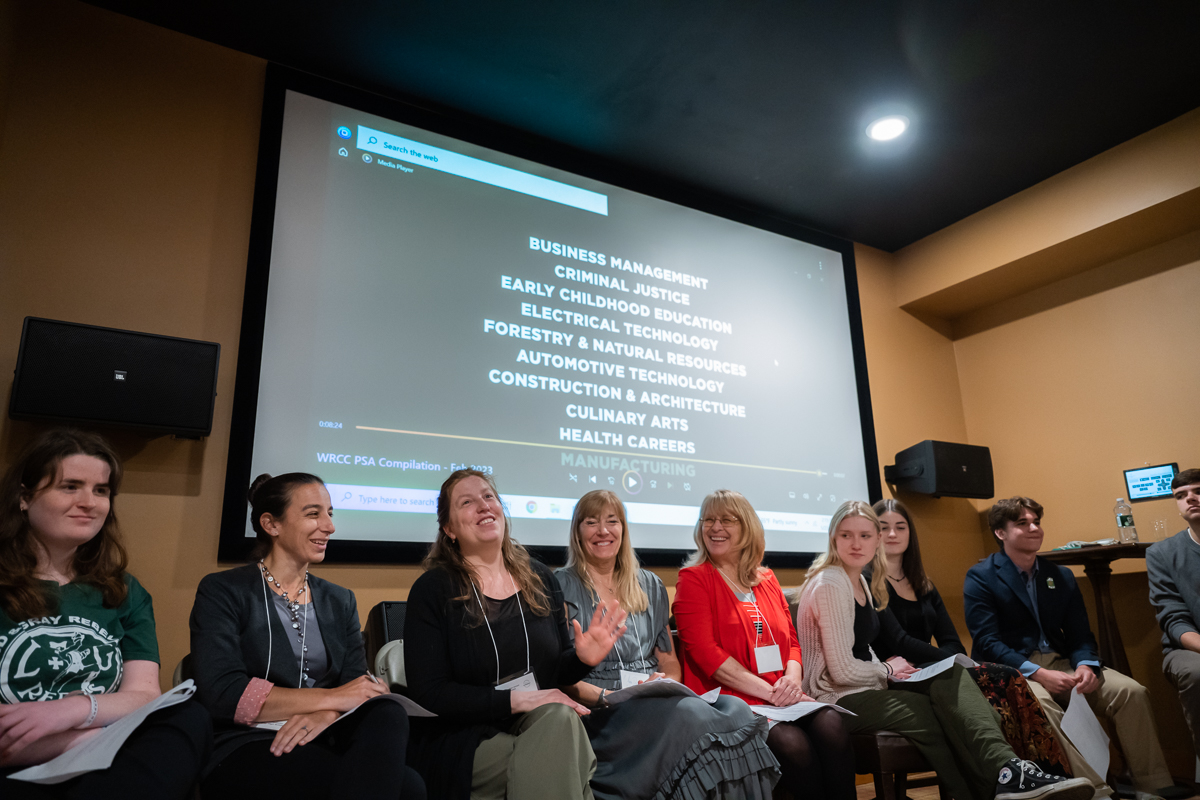
P3 Teacher Feature #2 – Celebrating Windham County’s Career Education Game-Changers
Remember that teacher who first got you thinking about what you might do with your life? That special educator who connected the big ideas, or daily skill-building, to things out in the real world? The P3 Teacher Feature series pays homage to some of the educational partners who exemplify the mission of BDCC’s Pipelines and Pathways Program for high school career education. These heroes link learning with life goals, by connecting students with career options in a variety of ways, from speaker panels to co-op and job shadow opportunities
Our second Teacher Feature highlights Rich Thompson, Engineering Instructor at the Windham Regional Career Center.
How long have you been a teacher?
Last year was my first year.
What did you want to “be” when you grew up?
When I was a kid, I wanted to be like the guys in “Adam 12” (a crime drama from the 60s and 70s). I wanted to be either a cop or fireman. I’m currently a volunteer firefighter in Grafton
What is your educational background?
I received my high school diploma from Minuteman Technical School in Lexington, MA. I received a certification in Manufacturing, and I went right into the workforce. But the whole time I’ve continued to take classes and courses. Now I’m up at VTC to get my teaching license.
What’s your employment history?
I worked in Hanscom Airforce Base in Bedford, MA in the early 80s. It was my first summer out of high school. I liked it but it was a job shop. They put you on one task, and if you were good at that task, they’d keep you there. They weren’t so willing to move you around to different jobs. So then I worked as a machinist for a small manufacturing company in Acton, MA until I was about 25 or 26. That’s when I hit my earning plateau – I was making as much money as I could in that field, so I started my own business. I did that until about 15 years ago when I closed that business. Then I moved to Grafton and started a prototype shop in my barn I built on my property. I enjoyed being self-employed for a long time, but I happened to see this job at WRCC advertised in the newspaper. My wife said I should give it a shot. I was very nervous to start teaching. But it’s so completely new to me, I’ve found it very interesting
What is your favorite topic to teach within your specialty?
I like watching the new kids create things on the manual machines, whether it be milling or the manual lathe. To see them create stuff with their own hands is very rewarding. I’ve made some good connections with these kids. They know I’m not the average high school teacher – I come right out of the industry, and they know where I stand on pretty much everything, for better or for worse. Working with the kids, hands-down, makes it all worthwhile, especially if they’re responding, and you can see that they’re digging it.
What’s the least fun part of your job?
Paperwork, bureaucracy – it isn’t run like private industry. But now that I’m on the inside, I see a lot of good people trying their very best.
How and why do you integrate career education topics into your curriculum?
We work alongside our technical English teacher to do some preparing for interviews. And of course, the instructors try to drill the importance of 21st century skills into the students; be on-time, dress the part, be respectful, and take every opportunity to improve your skill level.
What advice would you give to students who want to enter a career related to your teaching specialty?
I remember my VOC tech teacher, Mr. McDonald, pushing me to go to Wentworth Institute of Technology to get my academic skills up. He saw something in me that I didn’t see in myself. Later in my career, MIT used to come to me and ask for advice as they were developing one of the first robotic underwater machines. I made a ton of stuff for them. That’s probably what I should’ve been doing. But I didn’t bother getting the education. I decided to get hands-on skills.
You can make a decent living going into a job right out of high school. But get some skills. If you don’t plan to be a lifelong learner then manufacturing is not right for you. There are a lot of online resources and credentialing to go along with it. Get those foundational skills, and then if you want to go after an engineering degree you can. I can’t tell you how many engineers ask me for advice!
There’s absolutely nothing wrong with working at McDonalds. It’s an entry level job and it’s honest hard work. But if you want to get somewhere in life and really prosper, I say to them, I can tell you right now money doesn’t buy happiness, but being financially comfortable makes life a lot easier. Remember that the sky’s the limit if you apply yourself.
Teacher Feature is a series to celebrate educators who are leaders in career education. It is produced by the Pipelines and Pathways Program (P3) which provides employment oriented career-planning for the region’s high school students. It brings training in 21st Century skills, work-based learning, and personal learning plan (PLP) engagement opportunities to all public high schools in Windham County. Pipelines & Pathways is a Brattleboro Development Credit Corporation (BDCC) Workforce Center of Excellence program based on strategies to increase the size and quality of the workforce developed by Southeastern Vermont Economic Development Strategies (SeVEDS). For more information please visit https://brattleborodevelopment.com/ To nominate an outstanding teacher for our series, please reach out to cbetit@brattleborodevelopment.com
Funding for P3 is provided by the McClure Foundation, Vermont Training Program, Vermont Community Foundation, the Windham County Economic Development Program, Thompson Trust, People’s United Bank, Tom Smith & Omega Optical, and the Whitney Blake Company in Bellows Falls.



